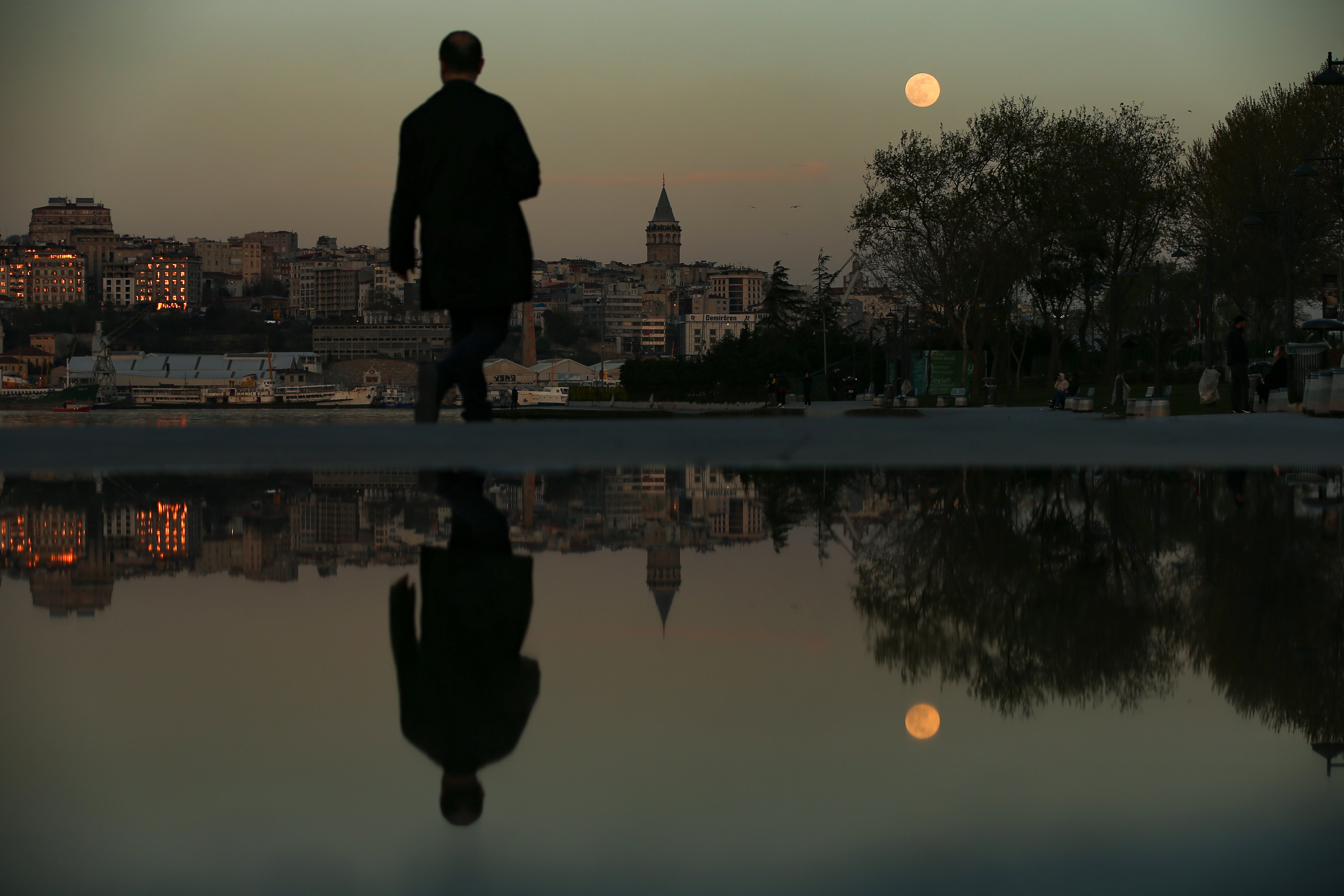Full COVID-19 lockdown adds to financial strain in Turkey
Turkey’s president has instructed people to stay home for nearly three weeks and shut down many businesses as part of the country’s strictest COVID-19 measures yet

Your support helps us to tell the story
From reproductive rights to climate change to Big Tech, The Independent is on the ground when the story is developing. Whether it's investigating the financials of Elon Musk's pro-Trump PAC or producing our latest documentary, 'The A Word', which shines a light on the American women fighting for reproductive rights, we know how important it is to parse out the facts from the messaging.
At such a critical moment in US history, we need reporters on the ground. Your donation allows us to keep sending journalists to speak to both sides of the story.
The Independent is trusted by Americans across the entire political spectrum. And unlike many other quality news outlets, we choose not to lock Americans out of our reporting and analysis with paywalls. We believe quality journalism should be available to everyone, paid for by those who can afford it.
Your support makes all the difference.As cases and deaths soar, Turkey’s president has instructed people to stay home for nearly three weeks and shut down many businesses as part of the country's strictest COVID-19 measures yet.
President Recep Tayyip Erdogan did not announce a stimulus package to offset the economic impact of the new restrictions. With Turkey's double digit inflation, sinking national currency and businesses in trouble, many Turks already have been struggling financially.
Gozde Aslan, a newspaper seller in Istanbul said the lockdown would be difficult to weather.
“We have to bring food to our homes, and we live in a period where everything is very expensive,” she said. “May God help us.”
Erdogan announced Monday that a “full lockdown” would begin Thursday and last until May 17. Residents will be required to stay home except for grocery shopping and other essential needs, while intercity travel only will be allowed with permission. Restaurants are allowed to deliver food.
Some businesses and industries will be exempt from the shutdown, including factories, agriculture, health care and supply chain and logistics companies. The Interior Ministry also published a list of exempt individuals, who include parliament members, health care workers, law enforcement officers and many others.
Aslan’s husband and business partner, Baris, said the Turkish government's decision came late but was correct. He added: “It’s a very difficult decision for the shopkeepers, for the working people. For this, the state should provide great assistance.”
Earlier this month, Erdogan announced an extension of short labor payments for registered workers whose hours were cut due to pandemic restrictions. Some payments previously were made to small businesses.
Shoe store manager Burcin Yilmaz lamented that he would again have to shut his business. During the past three months, several baerby shops that had been open a long time shut down for good, he said..
“We have to close down and wait and see what happens in the end,” Yilmaz said.
Erdogan said daily confirmed cases would have to rapidly drop below 5,000 for Turkey “to not be left behind” as many European countries start reopening.
"Otherwise, we will inevitably face a heavy price in every area, from tourism to trade and education,” the president said.
Opposition lawmakers blasted the government Tuesday. The leader of the main opposition party, Kemal Kilicdaroglu, called on Erdogan to propose a social aid package that would help closed businesses and day laborers in Turkey’s informal economies. He also said urged the suspension of debt enforcement proceedings for some time.
While agreeing with the necessity of a lockdown, Kilicdaroglu said, “People need to eat. They need to live.”
The government has been distributing tons of onions and potatoes this month with much fanfare. Many see it as a clear example of how much Turks are suffering from rising food prices and poverty. The World Bank, in a report published Tuesday, said Turkey's poverty levels rose from 10.2 percent in 2019 to 12.2 percent in 2020.
In March, the Turkish government split the country into four risk tiers and lifted weekend curfews and allowed indoor dining in many provinces. Coronavirus infections rose again before long, putting most Turkish cities into “very high-risk” categories.
Facing record numbers of confirmed cases, Erdogan in mid-April announced a partial lockdown during the month of Ramadan, bringing back weekend curfews, extending evening curfew hours and closing down restaurants for in-person dining.
Confirmed cases averaged around 60,000 per day during the peak week this month. The country recorded its highest daily death toll on April 21, with 362.
The latest Health Ministry statistics reported Monday showed 37,312 new confirmed cases and 353 deaths. Turkey's total death toll in the pandemic stands at 38,711.
___
Robert Badendieck in Istanbul contributed.